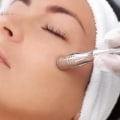As we age, our bodies naturally break down and become less efficient. But our lifestyle choices can accelerate or slow this process significantly. Poor diet is one of the most significant lifestyle factors that can cause premature aging. In this article, we'll explore the link between poor diet and aging and look at how it affects our overall health and well-being. We'll examine how certain dietary habits can lead to accelerated aging, as well as the potential consequences of consuming an unhealthy diet.
We'll also discuss how to make dietary changes that can slow down the aging process and improve overall health. The body requires a balanced diet for proper functioning. Poor nutrition can lead to an array of health issues, such as fatigue, weakened immune systems, and difficulty concentrating. Over time, these issues can worsen and lead to chronic diseases like diabetes, heart disease, and cancer. Poor nutrition can also affect the skin, leading to premature wrinkles and age spots.
In addition to physical health issues, poor nutrition can also lead to cognitive decline. Research has linked poor diets—particularly diets high in processed foods—with decreased cognitive function in older adults. Poor nutrition has also been linked to mental health conditions like anxiety and depression. It’s important to note that poor diet isn’t the only factor in aging.
Genetics, lifestyle choices, and environmental factors all play a role in how quickly we age. When it comes to lifestyle choices, there are several factors that can contribute to accelerated aging. Smoking is one of the most common culprits; smoking has been linked to wrinkles, age spots, and other physical signs of aging. Alcohol abuse can also lead to premature aging; heavy drinking can lead to dehydration and dry skin, which can make you look older than you are.
Exposure to sunlight is also a major factor in skin aging; UV radiation breaks down collagen and elastin fibers in the skin, leading to wrinkles and age spots. Lastly, stress has been linked to premature aging; chronic stress can take a toll on your body over time, leading to physical and mental health issues that can accelerate the aging process.
The Effects of Poor Diet on Aging
Poor diet can have a range of negative effects on the body and accelerate the aging process. Poor nutrition can lead to chronic inflammation, which can damage cells and accelerate the decline of the body’s immune system. This can lead to an increased risk of age-related diseases such as diabetes, heart disease, and cancer.A poor diet is also linked to oxidative stress, which is caused by an imbalance between free radicals and antioxidants in the body. Free radicals damage cells and can cause premature aging, while antioxidants fight free radical damage. A diet lacking in essential nutrients and vitamins can exacerbate oxidative stress, leading to further damage to cells and accelerating the aging process. Poor nutrition also affects mental health, with a lack of essential nutrients leading to cognitive decline and neurological disorders.
This can lead to an increased risk of dementia, depression, and other age-related mental health issues. In addition, poor diet can lead to deficiencies in vital minerals and vitamins which are essential for healthy skin and hair. A lack of these minerals and vitamins can result in dry, brittle hair, wrinkles, sagging skin, and an overall decrease in skin elasticity.
Lifestyle Factors That Can Contribute to Premature Aging
Lifestyle choices can play a major role in the aging process. Poor diets, lack of exercise, smoking, and excessive alcohol consumption are all factors that can contribute to accelerated aging. Poor nutrition is one of the most common causes of premature aging.Eating too much processed and sugary food can lead to an array of health problems, such as heart disease, diabetes, obesity, and more. A balanced diet rich in fruits, vegetables, whole grains, healthy fats, and lean proteins is essential for healthy aging. Regular physical activity is another important factor when it comes to aging. Exercise helps keep the body fit and active and can help prevent age-related diseases such as osteoporosis and heart disease.
Smoking is another lifestyle choice that can accelerate aging. Not only does smoking damage the lungs and heart, but it also increases the risk of wrinkles and other signs of premature aging. Quitting smoking is one of the best ways to protect yourself from the damaging effects of premature aging. Excessive alcohol consumption is also linked to premature aging.
Alcohol can damage the liver and disrupt hormones, leading to a variety of health problems that can speed up the aging process. Limiting alcohol consumption is essential for maintaining a healthy lifestyle. In conclusion, poor diet and lifestyle choices can have a significant and detrimental effect on our physical and mental health as we age. Eating a balanced diet and engaging in healthy habits such as regular exercise and stress management can help us to maintain good health and slow down the aging process. It's important to be mindful of the link between poor diet and aging, and to make conscious decisions that can help us to stay healthy as we grow older.


